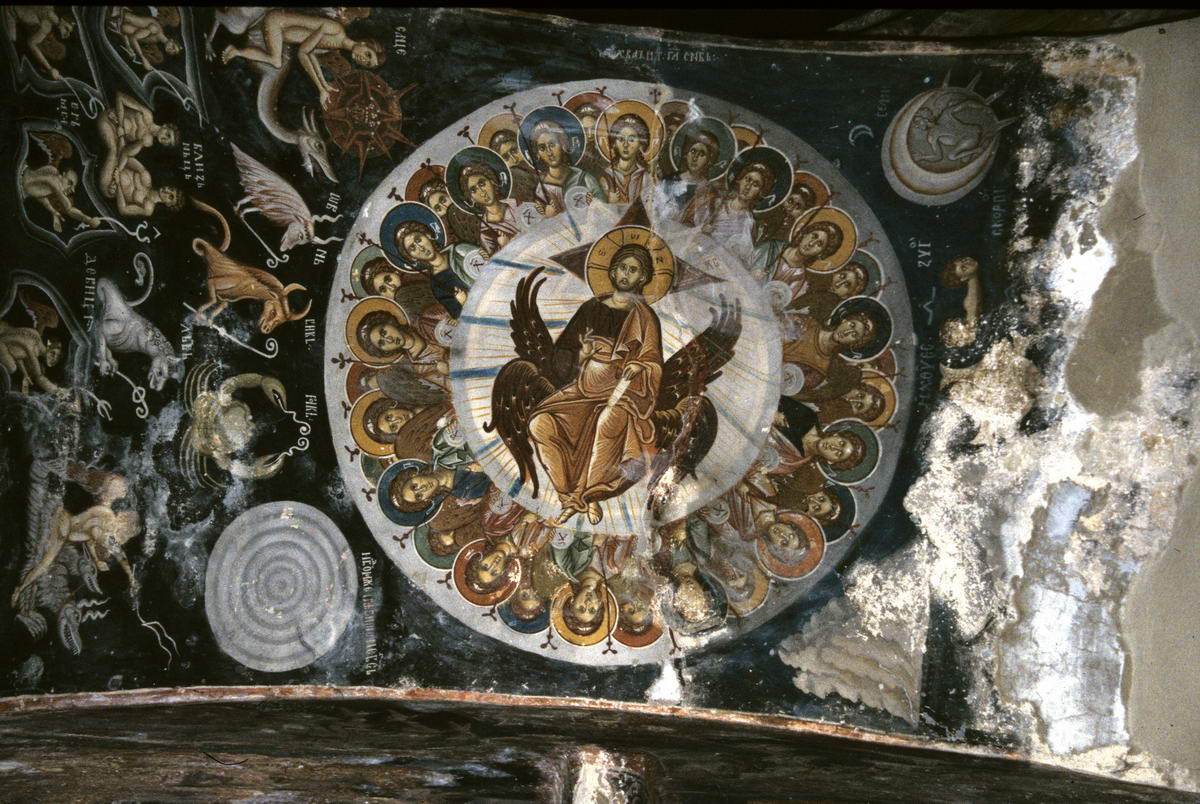In my last post I spoke a little about the deliberateness in St Benedict's choice of the psalms for this hour, and that is what I want to focus on in this series. Before getting down to that, however, I want to take a brief look at the context for those choices.
Building on the tradition - Old Testament sources
Much of what St Benedict does with Lauds drew on an existing tradition. There are numerous other references to early morning prayer in Scripture though, many of them cited by the Fathers and other key sources of the monastic tradition, which St Benedict could reasonably presume his readers were familiar with.
The only Scriptural citations St Benedict included in the Rule to justify the eight hours of his Office come from Psalm 118. He in effect adds several more references through the psalms set for each of the hours, not least at Lauds where several of the psalms contain references to prayer at first light and/or dawn.
Still, he undoubtedly assumed his readers were familiar with the ancient roots of this time for prayer. In Exodus, for example, God instructs that:
Aaron, when he trims the lamps each morning, shall burn fragrant incense on it, and again when he lights them at evening he shall burn incense in the Lord’s presence; a custom you are to preserve age after age (30:7-8).The non-canonical Book of Jubilees suggests that this tradition is even more ancient:
And on that day on which Adam went forth from the Garden, he offered as a sweet savour an offering, frankincense, galbanum, and stacte, and spices in the morning with the rising of the sun from the day when he covered his shame (3:27).In terms of later Jewish practice, another key source for later commentators on the Office was the book of Ezra, which records eight hours of prayers, four for the night and four for the day, which later Christian commentators following Bede applied to the Office, Lauds being counted amongst the night hours with Vespers, Compline and Matins:
And they rose up to stand: and they read in the book of the law of the Lord their God, four times in the day, and four times [in the night] they confessed, and adored the Lord their God.The Fathers and the monastic tradition
St Benedict's selection of some of the variable psalms for the hour also draws on earlier thinking about the theology of the hour, with Origen, Cyprian and Basil amongst others variously pointing to Psalms 5 and 62 in relation to the hour. St Basil, for example, in his longer Rule, says:
Prayers are recited early In the morning so that the first movements of the soul and the mind may be consecrated to God and that we may take up no other consideration before we have been cheered and heartened by the thought of God, as it is written: 'I remembered God and was delighted, and that the body may not busy itself with tasks before we have fulfilled the words: To thee will I pray, O Lord; in the morning thou shalt hear my, voice. In the morning I will stand before thee and will see.'Similarly Cassian mentions Psalm 50 in relation to morning prayer, as well as the three 'Laudate' psalms (Psalm 148, 149 and 150) that close the psalmody of the hour.
The Resurrection and early Christian practice
One of the most important features of St Benedict's Lauds, though, is insistence that it be started at first light. I chapter 8 of the Rule he says:
the morning office (Lauds), which is to be said at the break of dayIn the chapter 11 on Matins, he notes that in the unfortunate event that the monks sleep in, the lessons and responsories might need to be shortened in order to start Lauds at the proper time.
The symbolism is that the rising son symbolises the rising on the Son.
Whatever the Old Testament origins of the hour (and the sources vary on the antiquity and origins of the custom of Lauds), the idea that prayer at first light is a celebration of the Resurrection is a very early feature of the Christian tradition. Clement of Rome's letter to the Corinthians, for example, comments:
Let us consider, beloved, how the Lord continually proves to us that there shall be a future resurrection, of which He has rendered the Lord Jesus Christ the first-fruits by raising Him from the dead. Let us contemplate, beloved, the resurrection which is at all times taking place. Day and night declare to us a resurrection.
The night sinks to sleep, and the day arises; the day [again] departs, and the night comes on. Let us behold the fruits [of the earth], how the sowing of grain takes place.
The sower goes forth, and casts it into the ground, and the seed being thus scattered, though dry and naked when it fell upon the earth, is gradually dissolved. Then out of its dissolution the mighty power of the providence of the Lord raises it up again, and from one seed many arise and bring forth fruit. (ch 24)Building on this, the fourth century Apostolic Constitutions, says:
Likewise, at the hour of the cock-crow, rise and pray. Because at this hour, with the cock-crow, the children of Israel refused Christ, who we know through faith, hoping daily in the hope of eternal light in the resurrection of the dead.The very first psalm of Lauds, then, Psalm 66, draws us to this theme with its request for God to shine his light upon us:
1 Deus misereátur nostri, et
benedícat nobis: * illúminet vultum suum super nos, et misereátur nostri.
|
May God have mercy on us,
and bless us: may he
cause the light of his countenance to shine upon us, and may he have mercy on
us.
|


